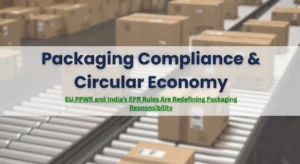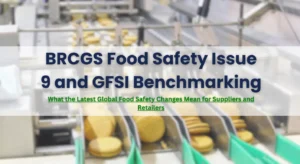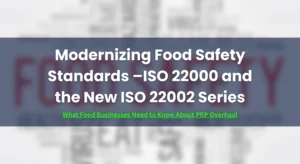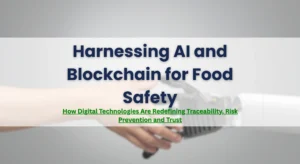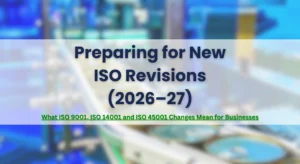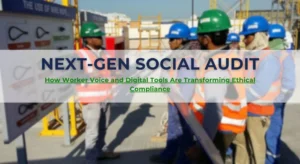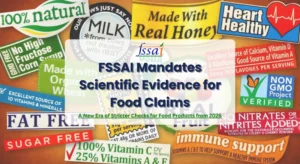As a leading FMCG consultancy firm, we at ESPL understand the transformative power of sustainability in driving growth, innovation, and resilience. The fast-moving consumer goods (FMCG) industry is at a pivotal crossroads. As the world grapples with environmental challenges, the demand for sustainable practices is no longer a consumer trend but a pressing necessity. Governments, investors, and increasingly conscious consumers are driving the industry to adopt sustainability as a core component of its operations. Let us share our insights on the key trends shaping the future of sustainability in FMCG, the challenges ahead, and how we can help your business seize these opportunities.
Emerging Trends in FMCG Sustainability
1. Circular Economy Models
The shift from linear production models (take, make, dispose) to circular ones is gaining traction. FMCG brands are investing in closed-loop systems where materials are reused, recycled, or composted. For example, refillable packaging solutions and deposit return schemes are becoming more mainstream, reducing waste and encouraging resource efficiency.
We specialize in helping businesses implement these models effectively, ensuring cost-efficiency and operational success.
2. Plant-Based and Alternative Products
Consumer demand for plant-based and alternative products is on the rise. From meat substitutes to eco-friendly cleaning solutions, FMCG companies are expanding portfolios to include products with lower environmental footprints. These innovations cater to environmentally conscious consumers while reducing dependency on resource-intensive industries.
Our consultancy provides actionable strategies to diversify your product offerings and capture this growing market segment.
3. Carbon Neutrality Commitments
Brands are setting ambitious goals to achieve carbon neutrality or net-zero emissions. This involves adopting renewable energy, optimizing supply chains, and implementing carbon offset programs. Transparency in reporting and collaboration with third-party certifiers are key to gaining consumer trust.
We guide companies in setting realistic carbon goals and achieving them with measurable results.
4. Technology-Driven Solutions
Technological advancements are empowering FMCG companies to monitor and optimize their sustainability efforts. Blockchain is being used to ensure traceability in supply chains, while AI and IoT help reduce inefficiencies in production and distribution processes.
Our expertise ensures seamless integration of these technologies into your operations, unlocking efficiencies and boosting accountability.
5. Sustainable Packaging Innovations
The packaging landscape is evolving rapidly. Biodegradable materials, edible packaging, and minimalist designs are reducing the environmental burden. FMCG leaders are partnering with startups and research institutions to pioneer these solutions.
We connect you with the right partners and solutions to revolutionize your packaging approach.
Challenges to Overcome
Despite the progress, several challenges remain:
- Cost Implications: Sustainable practices often require significant upfront investment. Transitioning to renewable energy, sustainable sourcing, or innovative packaging can strain budgets, particularly for smaller players.
- Consumer Education: While awareness is growing, many consumers remain price-sensitive or uninformed about the long-term benefits of sustainable choices. Bridging this gap is crucial for widespread adoption.
- Regulatory Compliance: Navigating varying environmental regulations across regions can be complex. FMCG firms need to stay agile and proactive in meeting local and international standards.
- Supply Chain Complexity: Ensuring sustainability across global supply chains is daunting. From sourcing raw materials to end-of-life product disposal, transparency and accountability are critical but challenging to achieve.
At ESPL, we address these challenges head-on with tailored strategies that align with your business goals.
Opportunities for Growth
For forward-thinking FMCG companies, sustainability presents significant opportunities:
1. Market Differentiation
Brands that embrace sustainability can position themselves as leaders in a crowded market. Eco-conscious consumers are increasingly loyal to companies that align with their values, providing a competitive edge.
2. Innovation Potential
Sustainability drives innovation. From developing new product categories to rethinking logistics, companies can discover creative ways to reduce costs, enhance efficiency, and create value for stakeholders.
3. Collaboration and Partnerships
Collaboration with NGOs, governments, and other businesses can accelerate progress. Shared resources and expertise can amplify impact and mitigate the risks associated with individual efforts.
4. Investor Appeal
Environmental, Social, and Governance (ESG) metrics are becoming critical to investment decisions. Companies with strong sustainability credentials are better positioned to attract funding and long-term partnerships.
We help you leverage these opportunities to drive growth and long-term success.
Why Choose Us?
Sustainability is more than a business imperative; it is a pathway to long-term success. At ESPL, we bring unparalleled expertise, strategic insights, and actionable plans tailored to your business needs. From conceptualising sustainable initiatives to ensuring their seamless execution, we’re your partners in building a resilient and impactful FMCG brand.
Let’s create a sustainable future, together. Reach out to us today to explore how we can help your business thrive in the era of sustainability.
Read this article to know about Implementing an Integrated Management System (IMS) in a Renowned Pharmaceutical Company



